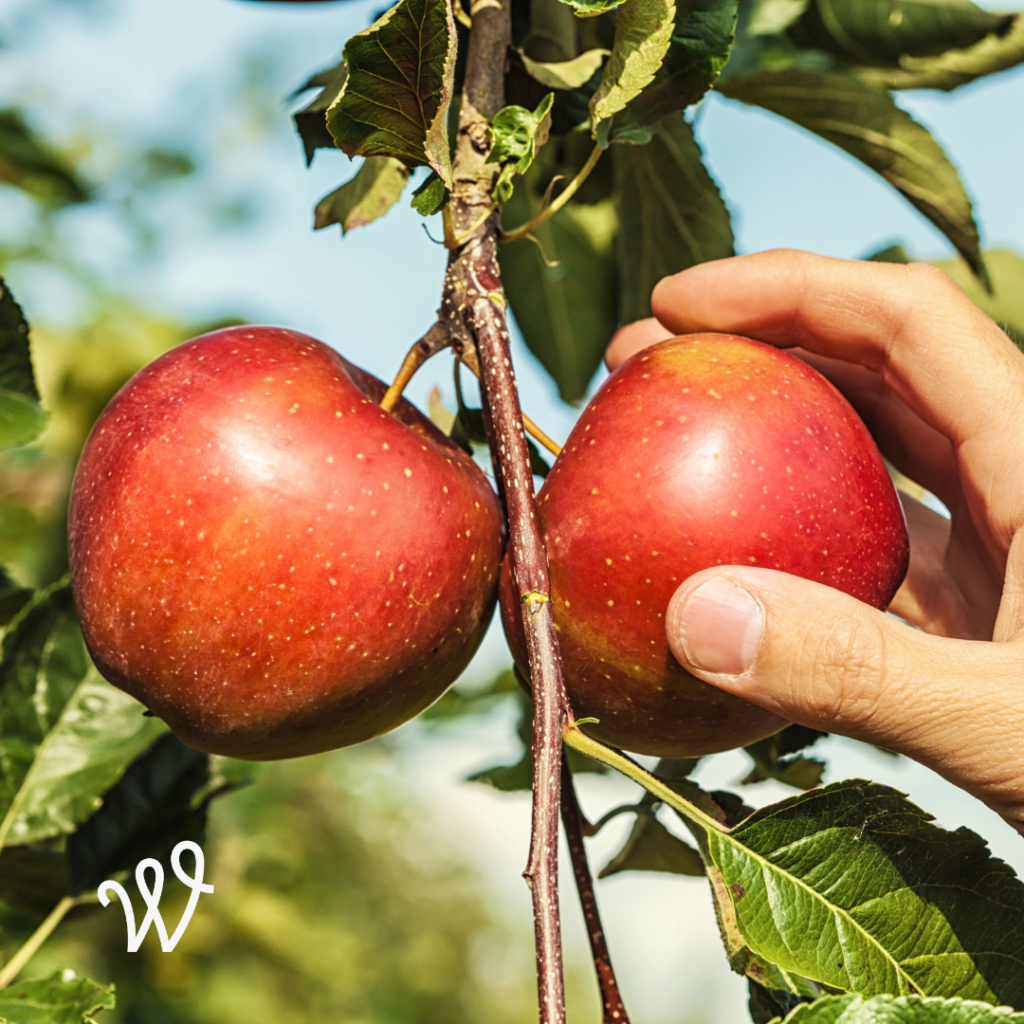The Enduring Connection Between Immigration and Agriculture
Earlier this year, before the rush of harvest season, we sat down to talk with an incredible woman in our community. Dani Teeple and her husband run a farm that is the largest organic apple producer in the Northeast.
“Migrant work has always been a part of harvesting agriculture, especially in New York,” Dani recalls. “Growing up it was a natural thing.” She tells us her husband grew up with Jose* who has been working with them for 30 years now. He and their other key workers are so integral to their business that she says she doesn’t believe they could do it without them. They manage all the details for bringing in 60 migrant workers each year.
She has seen changes over the last few years as it has become more difficult to get visas and more expensive to bring the workers they need. She talks about the growing complications of sponsoring migrant workers with a long sigh. “People don’t realize how much it takes,” she says. It’s around $6,000 a person to cover their visa, transportation, consulate fees, housing, and food allowance. That’s before their wages. “They are that valuable to us,” she says. They advertise jobs to locals every year. She tells us the average time a local lasts on the job is two days. The longest has been three weeks. They can’t keep up, bruise the fruit, and don’t want these jobs vital to the U.S. economy.
“Our county in New York is 95% farming and 80% fruit farming,” reminding us of the importance of this work to her community, and to the country. The guys come for three to seven months. Her husband, who is a fourth-generation farmer, remembers when the option existed for workers to bring their families. That’s how we grew up together with Jose. All that changed after the pandemic. “It’s scary with what’s happening,” she says. “My kids were used to having their friends (the worker’s children) here. But no one wants to get stuck at the border. It breaks my heart because they are leaving their families at home. These people are here, and they need a place to live. We have dormitories. I can fit 60 people here.”
The Opportunity to Build Community
More importantly, these guys have become family to Dani. “Our migrant workers are working for a purpose because they are supporting their families at home. We make sure when they get here they feel like this is their home.” She tells us they are working for a purpose and they work hard because they get paid by the amount they pick. The money they make in three months in the U.S. goes to feed their families for the rest of the year. The U.S. dollar goes a long way in their home countries.
“The church community loves having them,” she tells us when she speaks about all of them piling onto a bus to go to church on Sundays. “A lot of the kids get excited to practice Spanish and English together. The people we know call them “your guys” and know these people are my family.” They have family dinners together on Fridays to give the guys a chance to unwind, relax, and just be. They are hoping to start a soccer league with some other farms this year.
The Need to Change the Narrative
Sadly, she has seen a turn in the way migrant workers are viewed and treated in recent years. She’s seen cashiers reject them for not speaking English. Sometimes Uber won’t pick them up, and transportation has become a problem. “The church needs to do better,” she says. “We need to lead the way in saying how God wants us to treat our fellow humans.”
When we asked her what misconceptions people have about migrant workers, she said she wants people to remember that as much as they try to be welcome to the guys, they would rather be at home with their families. “We try and foster a community and family, but it’s not their families. By the end of September, you can tell they are missing home.”
The other misconception she points out is that people believe migrant workers are running from something. “They aren’t running from the law,” she says. “They want to provide for their families. Yes, they are running—often from severe persecution. Sometimes the money needs to get home fast so they can get food on the table or the medicine their family needs. It’s pennies on the dollar they are making. They aren’t coming so they can buy fancy things. This is literally about eating or not.”
The Part We Can Play
So, what can we do? This harvest season as workers leave their families behind for months, we can pray for them. Would you watch this video and let Dani and her family know you are praying in the comments?
Every time you pick up an apple, take a moment to consider how many people are impacted by the work that brings food to your table. Let it be a reminder to us of the reasons migrant workers leave home and the opportunity we have to be a welcoming presence for them. Think about how you can welcome immigrants and refugees, how your community and church could become a place of peace like Dani’s home.
*Name changed

 This resource answers the most common questions Christians have about immigration and equips you to engage conversations with biblical clarity, truth, and grace.
This resource answers the most common questions Christians have about immigration and equips you to engage conversations with biblical clarity, truth, and grace.